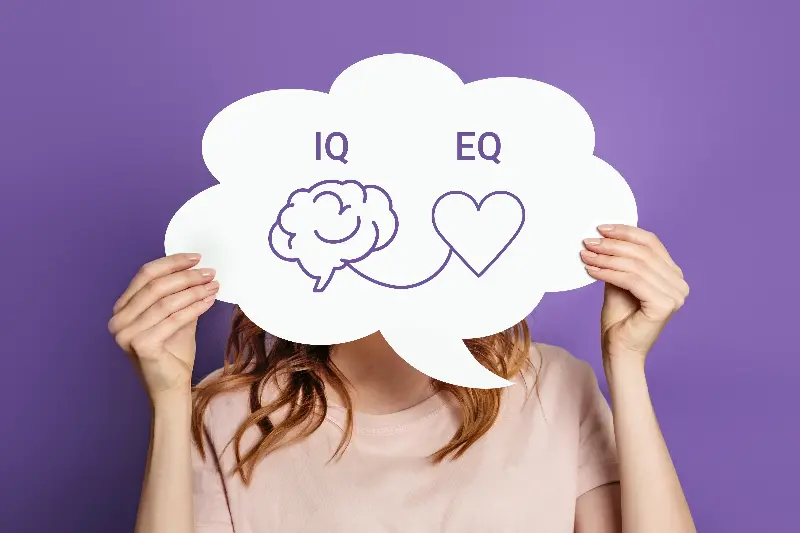Success may have once seemed tied only to IQ, but today, emotional intelligence—often called EQ—is gaining the spotlight as one of the most valuable skills for shaping your future. Whether you dream of climbing the corporate ladder, mastering relationships, or simply feeling more balanced amid life’s changes, EQ is an essential asset. But why has emotional intelligence become so vital, and how can it unlock your potential for lasting success? Let’s dive into the world of EQ and discover the compelling reasons to develop this game-changing skill.

Understanding Emotional Intelligence
Emotional intelligence involves much more than recognizing your own feelings. At its core, EQ is about being aware of, understanding, managing, and expressing emotions—both yours and those of others. Coined in the 1990s by psychologists Peter Salovey and John D. Mayer, and popularized by author Daniel Goleman, EQ includes skills such as empathy, self-regulation, motivation, social skills, and self-awareness.
Why does this matter? Imagine trying to navigate a heated workplace disagreement, coach a youth sports team, or simply collaborate on a family decision. IQ alone won’t help you read the room or connect with people’s underlying concerns. That’s where EQ shines, equipping you with the ability to understand complex emotional dynamics and respond thoughtfully.
The Science Behind EQ and Success
The link between emotional intelligence and real-world achievement is supported by a growing body of scientific research. Studies have shown that people with higher EQ are better at managing stress, making decisions under pressure, and bouncing back from setbacks. For example, a well-known study by TalentSmart indicated that 90% of high performers at work have high EQ, while only 20% of low performers do.
Neuroscience reveals that the areas of the brain responsible for emotion (like the limbic system) and for reasoning (such as the prefrontal cortex) aren’t as separate as once believed. Emotions influence how we process information, remember events, and even solve problems. Emotional intelligence, therefore, allows us to manage these emotional impulses and maintain clear, rational thinking—an ability prized not only in workplaces but also in personal life.

EQ in Action: Real-Life Benefits
So what does emotional intelligence actually look like in everyday life? It can be as simple as reading the mood in a team meeting and adjusting your approach, or as complex as resolving a conflict without letting tempers flare. People with strong EQs are often resilient, adaptable, and great communicators. They are the colleagues who can keep their cool during a crisis, leaders who inspire loyalty, or friends who listen without rushing to judge.
In personal relationships, high EQ translates to greater empathy and healthier communication. Couples and friends with high emotional intelligence handle disagreements constructively, leading to deeper connections. In fact, research published in the journal “Personality and Individual Differences” found that EQ plays a major role in relationship satisfaction—often more than personality traits or even shared interests.
Career-wise, employers increasingly value emotional intelligence. A global survey conducted by LinkedIn identified soft skills such as persuasion, collaboration, and adaptability—all closely tied to EQ—as the most in-demand skills for new hires. It’s no wonder that executives say they’d rather hire someone with moderate technical skills and high EQ, rather than vice versa.
How to Build Your Own Emotional Intelligence
The good news is that emotional intelligence isn’t a fixed trait. Unlike traditional measures of intelligence, EQ can be developed and strengthened over time. You can start by practicing self-awareness: spend time reflecting on your emotional reactions and what triggers them. Journaling can help you spot patterns and build a deeper understanding of your feelings.
Empathy is another cornerstone of EQ. Try to see situations from others’ perspectives, even—especially—if you disagree. Simple acts, like asking open-ended questions and truly listening, foster empathy and improve your social awareness.
Self-regulation is about managing your reactions. Before responding to stress (for example, a critical email at work), take a pause and check in with your emotions. Are you feeling defensive, anxious, offended? Recognizing the feeling gives you space to choose your reaction rather than act on impulse.
Finally, remember that constructive feedback and ongoing learning are your allies. Seek out trusted friends, mentors, or coaches who can offer insights into your strengths and growth areas. Practice doesn’t just make perfect—it makes progress.

EQ and the Future: Why Now Matters More Than Ever
In today’s rapidly changing world, emotional intelligence is more essential than ever. The rise of remote work, global teams, and technological disruption means that people skills matter at least as much as technical know-how. As artificial intelligence handles an increasing number of tasks, the uniquely human qualities of empathy, adaptability, and effective communication are becoming key differentiators.
But emotional intelligence isn’t just for CEOs or HR professionals. It’s for anyone who wants to thrive—at home, at work, and in the community. By investing in EQ now, you’re equipping yourself to meet challenges with confidence, collaborate with diverse people, and achieve a richer, more fulfilling kind of success.
There’s no better time to unlock your future success through emotional intelligence. It’s the skill that gives you the edge in every area of life—one you can start developing today.
So, how will you use EQ to shape your tomorrow?
